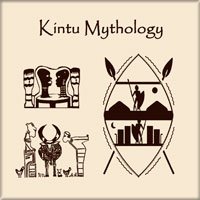Kintu Mythology
Kintu Mythology
east-africa

The Kintu, Kaikuzi, Warumbe mythology involves several beliefs of the Maasai people, an ethnic group living in Kenya and Tanzania
Kintu is a figure in the traditional mythology of the Ganda people of Uganda. According to the Ganda's traditional story, Kintu was the first human being created by the god, Ggulu. The story of Kintu is an important part of Ganda mythology, and it is used to explain the origins of the Ganda people and their customs.
The Kintu Myth Explained
The Kintu Myth explains how the first human came to be, how the first human was given a wife by the creator god, Ggulu, and how they were given the ability to procreate. The myth goes on to describe how Kintu and his wife, Nambi, had children, and how those children went on to become the ancestors of the Ganda people.
Kintu as the First Ancestor
In this story, Kintu is considered as the first ancestor of the Ganda people, and his children are considered as the founders of different Ganda tribes and clans. The story of Kintu is also used to explain the customs and traditions of the Ganda people, such as the importance of ancestor worship and the role of the clan in Ganda society.
Kintu as the Ancestor of the Buganda Kingdom
It is also believed that Kintu is the ancestor of the Buganda kingdom which is the largest kingdom in present day Uganda.








